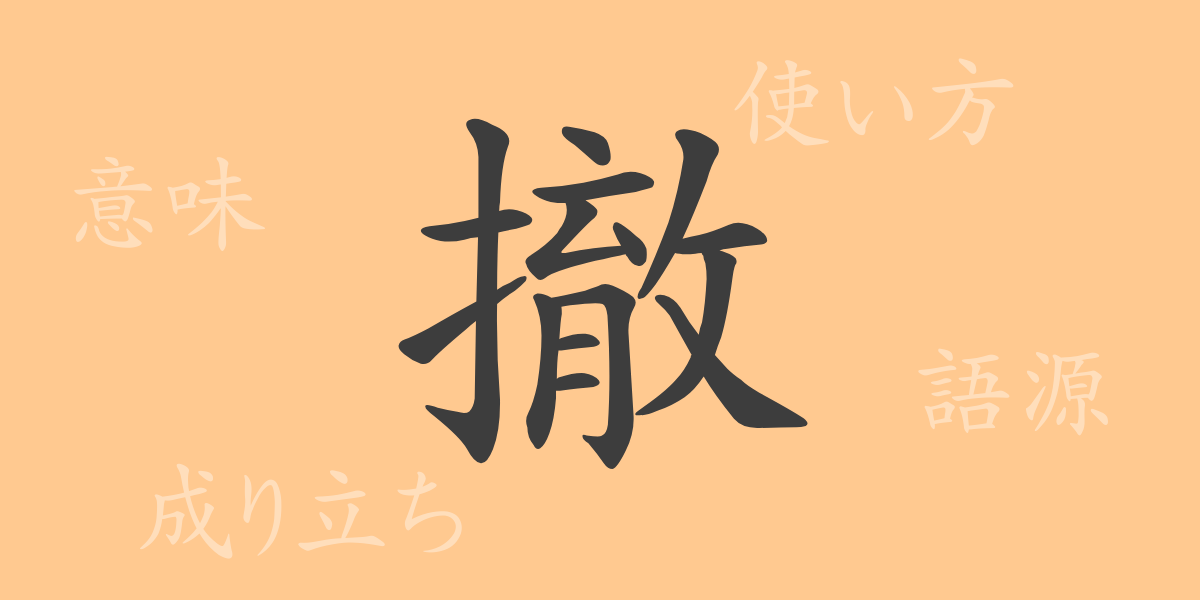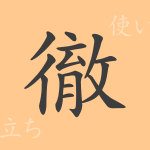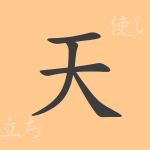Japanese culture is deeply enriched by its language, and each kanji carries its own unique history and meanings. The kanji ‘撤(テツ)’, while not commonly encountered in everyday life, plays a significant role in various contexts. This article explores the etymology, contemporary usage, and phrases related to ‘撤’, providing a comprehensive understanding of this fascinating character.
Origins of ‘撤(テツ)’
The kanji ‘撤’ originated in ancient China, derived from the earliest forms of Chinese characters. It is a compound character consisting of ‘扌'(てへん) denoting hand-related actions, and ‘彻’ symbolizing penetration. Together, they convey the action of removing something by hand, which over time has broadened to include various related meanings.
Meaning and Usage of ‘撤(テツ)’
‘撤’ carries meanings such as “to remove,” “to withdraw,” or “to dismantle.” It is commonly used to describe the act of removing something from a place or withdrawing from a situation. Metaphorically, it can also denote stepping back from a position or state. In Japanese, this kanji enables the creation of various words and expressions that reflect these concepts.
Readings, Stroke Count, and Radical of ‘撤(テツ)’
Details about the kanji ‘撤’ are as follows:
- Readings: On’yomi is ‘テツ’; there is no specific Kun’yomi.
- Stroke Count: Total of 15 strokes.
- Radical: ‘扌'(てへん) is the radical, related to hand actions.
Phrases, Idioms, and Proverbs Using ‘撤(テツ)’
There are numerous idiomatic expressions and proverbs that include ‘撤’. Here are some examples:
- 撤去(テッキョ): The act of removing or relocating something.
- 撤収(テッシュウ): Packing up and restoring a place to its original condition after an event has ended.
- 撤回(テッカイ): Withdrawing a statement or opinion that has been previously put forward.
- 撤兵(テッペイ): The act of an army retreating from a battlefield.
These phrases are commonly used in everyday and professional scenarios.
Conclusion on ‘撤(テツ)’
The kanji ‘撤’ embodies a rich spectrum of meanings, from physical removal to the retraction of an opinion or position. Understanding the historical context and current applications of ‘撤’ enhances our appreciation of how deeply this character is woven into the fabric of the Japanese language. This exploration not only deepens our understanding of ‘撤’ but also highlights the expressive power of kanji within the Japanese language.

























